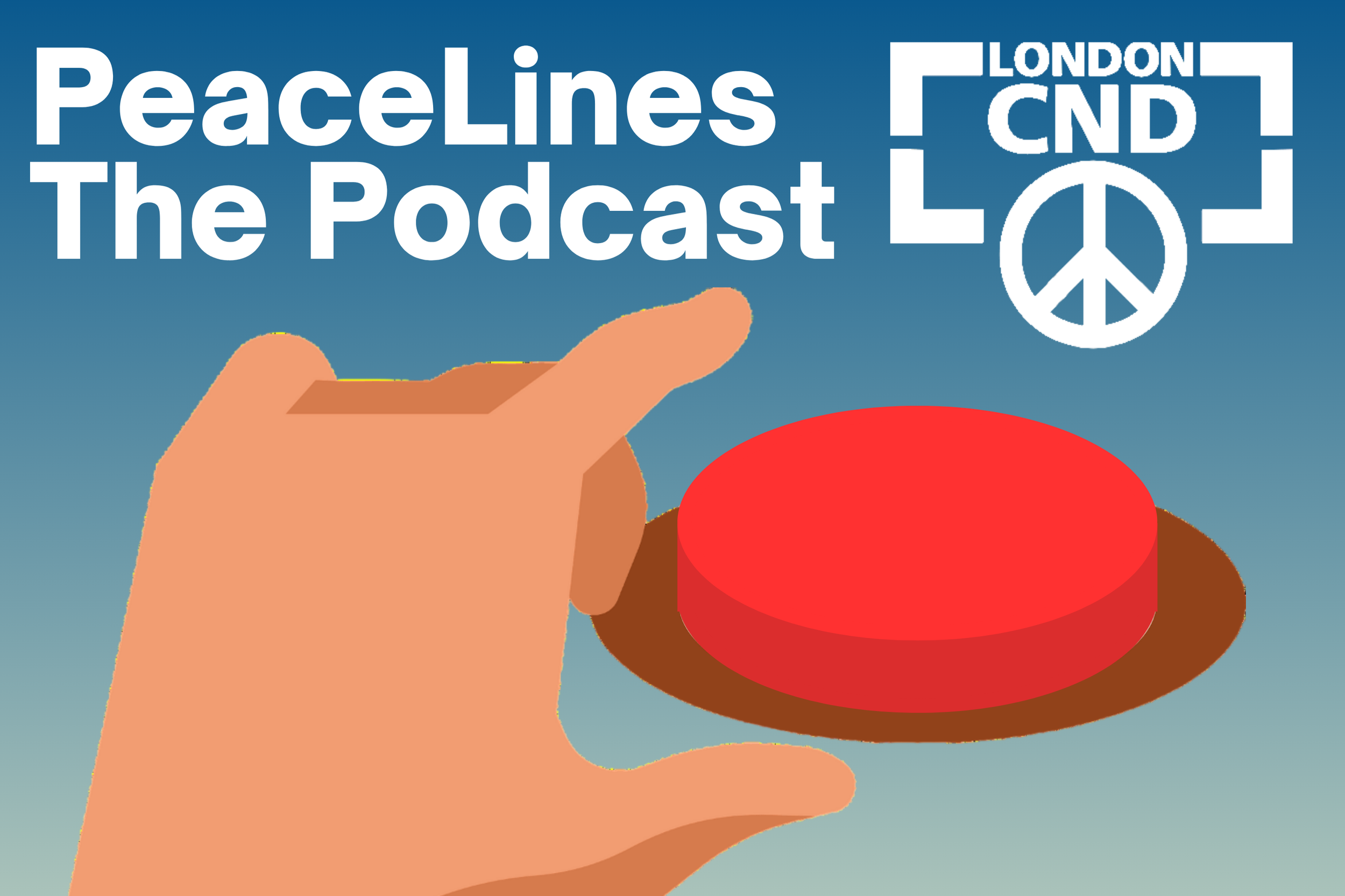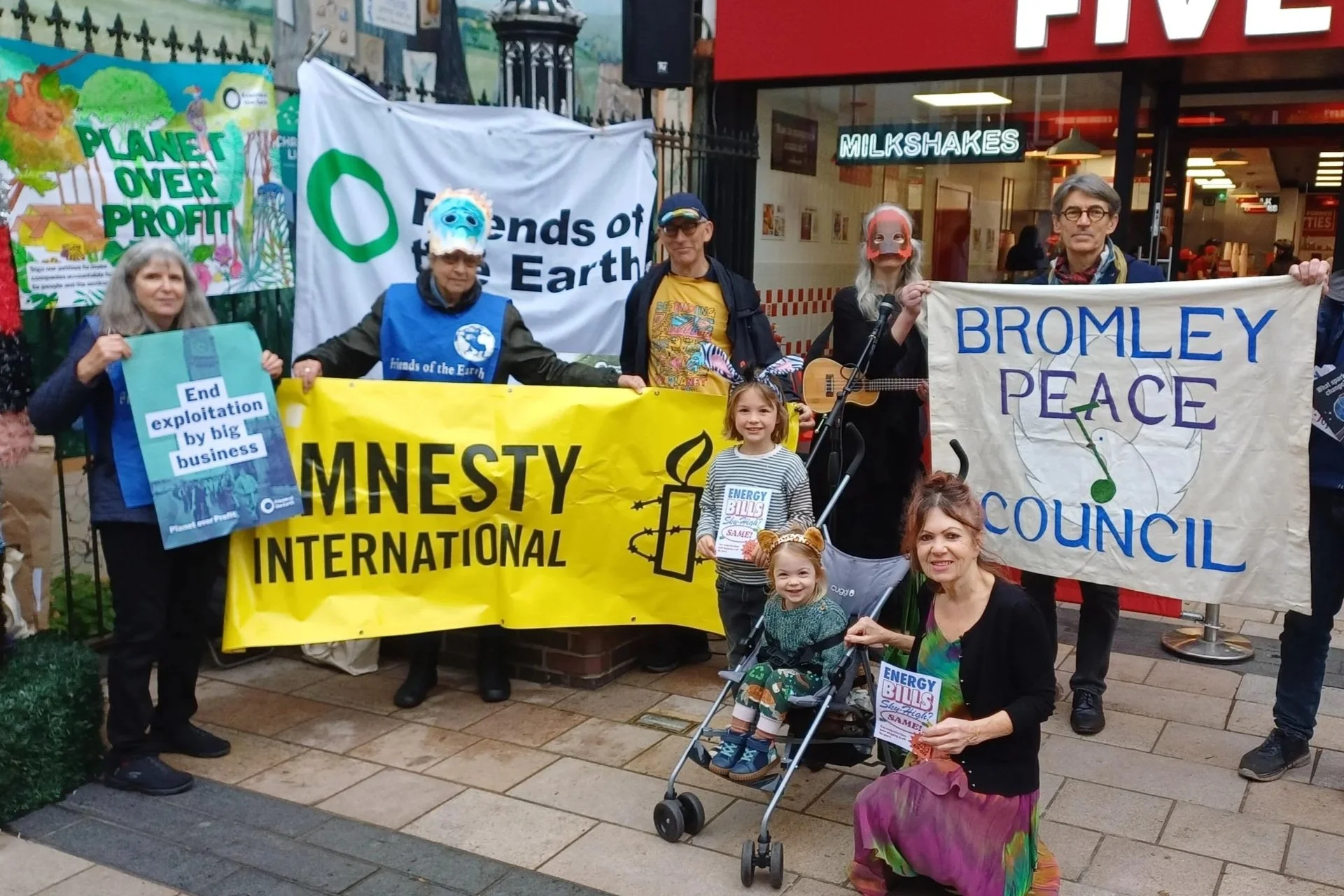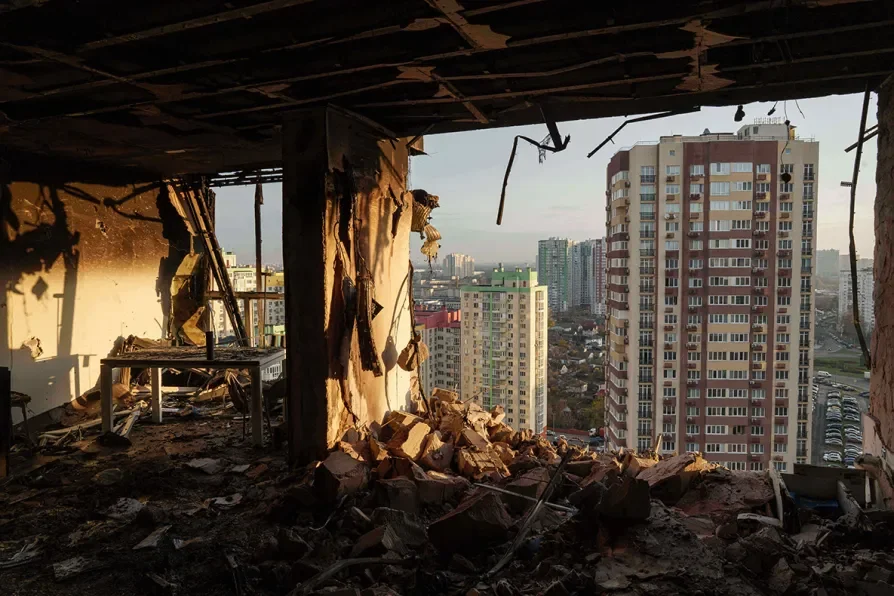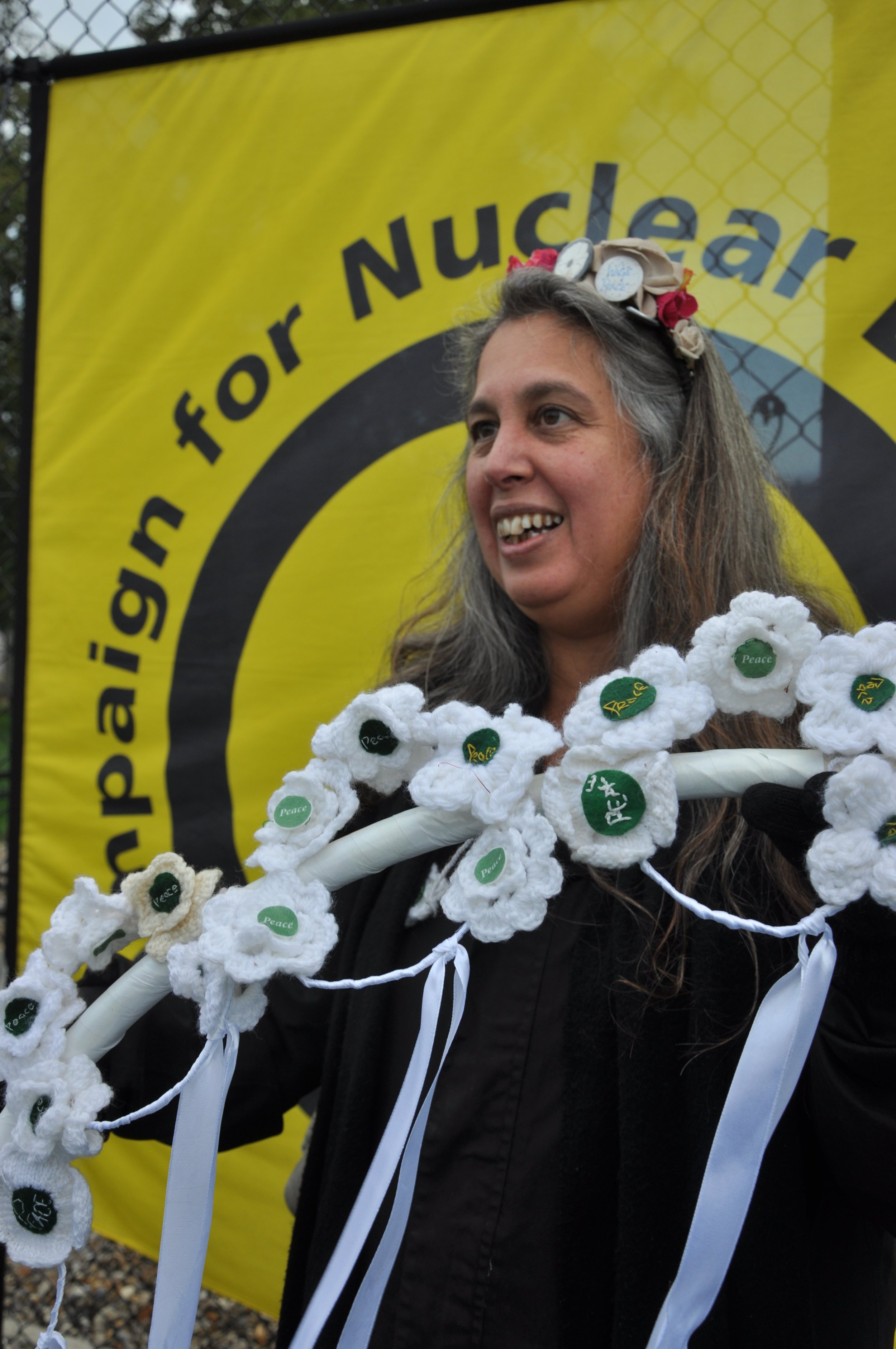As global calls for a ceasefire mount, CND’s Chair, Tom Unterrainer, writes a blog on the CND website on the catastrophe in Gaza, and the risks presented by Israeli nuclear weapons.
“We moved to a new phase in the war … Tonight, the ground in Gaza shook.” With these words, Israel’s Defence Minister Yoav Gallant announced an intensive escalation of the war against the Palestinian people in Gaza, on 28th October. This was a monstrous understatement. “Shook” hardly covers the murder, devastation and criminal disregard for humanity that is taking place in Palestine.
Midnight arrived for all-too-many in Gaza that evening and in the following days. Water, food and fuel supplies had already been cut. Hundreds of thousands had fled south. Others sought shelter wherever they could. Bombs were already falling. Then the lights went out: all telecommunications were severed; electricity cut. Then the bombings intensified. Hundreds more corpses – men, women, children, the frail, the elderly, those yet to be born, those in incubators, those trying to find clean water and food – joined those already slaughtered. Names were written on the bodies of some of the slaughtered, the children in particular. “The world should know about these children who were murdered by Israel because they are not numbers, but names, stories and dreams killed by the Israeli occupation in Gaza,” one parent told Al Jazeera.
At around this time, a second US aircraft carrier and strike group passed through the Strait of Gibraltar on their way to the Eastern Mediterranean. The UK has already deployed two Royal Navy ships and surveillance aircraft to the region to “bolster security”, according to the Prime Minister’s spokespeople. But in the name of what concept of “security” have US and UK ships, aircraft and military personnel been dispatched to the region? It’s not security for the people of Gaza, already subject to collective punishment and bombardment. If the people’s security was a priority for the US and UK governments, they would be backing a ceasefire, rather than preventing it, and ensuring justice and sovereignty for the Palestinian people. This is how they can ensure lasting peace and security in Palestine and Israel.
And let us not forget that Israel is the only nuclear-armed state in the region – a grave concern as the risk of wider conflict in the region escalates. The US and UK claim that their own possession of, threat to use, and development of new nuclear weapons are the ultimate guarantors of “security”. They will tell anyone daft enough to listen that maintaining the capability to unleash genocide is a reasonable and essential “security” measure. Nuclear-armed Israel no doubt feels the same way. It refuses to acknowledge its nuclear arsenal, stands outside any nuclear treaties, and is subject to no inspections or international monitoring; yet it faces no sanctions or condemnation from its allies. So much for the ‘rules based international order’ – this is sheer double standards.
Members of the Campaign for Nuclear Disarmament – who determine CND policy – met at our recent annual conference, and were clear on where we stand. We agreed an Emergency Resolution which notes that Israel’s “aggression increases the risk of war in which nuclear weapons may be used” and which calls on the “British government to press for an immediate ceasefire and an end to the siege of Gaza”.
We are also clear that our support for the mass national and local demonstrations coordinated with the Palestine Solidarity Campaign, Stop the War and others will continue. We will also work to support and engage with the growing number of trade unionists that oppose the production in Britain, of weapons for use on Palestine, and who – alongside other trade unionists internationally – are working to prevent their transportation to Israel. We will continue to work to remove all roadblocks to peace. We will continue to demand a ceasefire.







